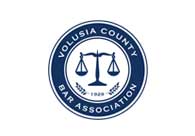
How does Trust Administration Work Under Florida Law
- By Wendy Mara
When someone creates a trust, the trust-maker intends for his or her assets to pass to their beneficiaries in a controlled, private, and effective manner. But after the trust-maker (often called the “settlor” or “grantor”) passes away or becomes incapacitated, managing and distributing the trust’s assets is no small matter. That process is called trust administration. In Florida, it is governed by statutes, case law, and fiduciary duty rules. Below is an in-depth guide to how trust administration works under Florida law and how Mara Law, P.A. can assist you through this often-complex journey.
What Is Trust Administration?
In simplest terms, trust administration is the legal process by which a trustee carries out the trust’s terms. After the grantor’s death (or earlier, if a trust becomes irrevocable), the trustee is responsible for:
- Identifying, gathering, and managing all trust assets
- Paying valid debts, expenses, and taxes
- Communicating with and sometimes accounting to beneficiaries
- Distributing assets in accordance with the trust’s terms
- Resolving disputes or claims
Trust administration is a serious responsibility because of the fiduciary duties involved. Mistakes or missteps can lead to litigation, personal liability, or unhappy beneficiaries. The trust administration process in Florida is structured by the laws found in Florida Statutes, Chapter 736 (the Florida Trust Code), and related probate rules.
Key Steps in Florida Trust Administration
Below is a generalized sequence of steps a trust administrator or trustee must follow in Florida. Each trust may differ, so legal guidance is essential.
- Locate and Read the Trust
First, the trustee must locate the trust document(s), review the documents carefully, and ascertain the instructions, powers, and limitations the grantor established. Some trusts are revocable (and convert to irrevocable upon death or incapacity), while others are irrevocable from the start. The trust may designate primary vs. contingent beneficiary designations, successor trustees, spend-thrift clauses, and more.
- Accept or Decline the Trusteeship
In some cases, a trustee must formally accept or decline the role. If the primary trustee cannot act, the trust may allow a co-trustee or successor trustee to step in.
- Notify Beneficiaries
Florida law generally requires the trustee to provide notice to trust beneficiaries shortly after the trustee accepts, so that beneficiaries are informed about their interest, the identity of the trustee, and certain basic trust information. This notice helps promote transparency and allows beneficiaries to monitor administration.
- Collect, Protect, and Manage Trust Assets
The trustee must identify, locate, title, and formally transfer all trust assets into the trust’s control. It can include real estate, investments, bank accounts, business interests, life insurance, and personal property. The trustee has a duty to invest prudently, maintain insurance, and protect assets from loss or waste.
- Pay Expenses, Debts, Taxes, and Claims
Before distributing anything to beneficiaries, the trustee must settle valid claims against the estate or trust and pay for expenses, including funeral costs, outstanding debts, and any required taxes (income taxes, estate taxes, or trust-level taxes). The trustee may need to convert assets or sell property if insufficient liquidity exists.
- Account to Beneficiaries
Many trusts require that the trustee provide beneficiaries with periodic or final accountings showing how trust assets are handled, expenses paid, and distributions made. Even if not explicitly required, a beneficiary may request accountings, and courts may compel them if a trustee fails in that duty or there is suspicion of mismanagement.
- Distribute Assets According to the Trust Terms
Once the obligations are resolved, the remaining assets are distributed to beneficiaries as the grantor intended. Distribution could be outright, in stages, or subject to conditions.
- Close the Trust Administration
After all distributions and accounting are completed, the trustee may seek a court order confirming the final accounting and closing of the trust. That final step helps protect the trustee from future liability.
Roles & Terminology: Trustee, Beneficiary, Administrator
- Trustee / Trust Administrator: These are the titles of the person or entity charged with carrying out the trust’s terms. The trustee has fiduciary duties of loyalty, prudence, impartiality, and accountability. A trust administration attorney is often engaged to guide the trustee through complex legal obligations, minimize risk, and ensure compliance with Florida law.
- Trust Beneficiary: One entitled to receive benefits or distributions under the trust. Beneficiaries may be immediate (“primary beneficiaries”) or conditional (“contingent beneficiaries”), depending on whether certain conditions are met.
- Primary vs. Contingent Beneficiary: A primary beneficiary is first in line to receive benefits under the trust. If the primary beneficiary fails to qualify—perhaps through predeceasing the grantor or inability to meet conditions, the contingent beneficiary becomes next in line. The trust document should clearly define both classes.
Can a Trustee Be a Beneficiary?
Yes, in Florida, a trustee can also be a beneficiary, provided the terms of the trust allow for it. However, this dual role heightens the potential for conflicts of interest. Trustees in that circumstance must act with extra care, adhere strictly to the trust’s terms, and maintain full transparency. When a trustee is also a beneficiary, scrutiny from other beneficiaries is common, and the risk of litigation or objections rises. Engaging a trusted trust administration lawyer can help navigate those tensions and ensure proper compliance.
Can a Trust Be Contested?
Even with careful planning, disputes arise. Yes, a trust can be contested in Florida under certain grounds. Beneficiaries or interested persons may bring challenges. Common bases for challenging a trust include:
- Lack of testamentary capacity
- Undue influence
- Fraud or duress
- Improper execution or formal defects
- Ambiguous language or error
- Violation of statutory formalities
If you wish to contest a trust, you generally must file a petition in the appropriate Florida circuit court within the statute of limitations. Timing is critical. The court may permit evidentiary hearings, discovery, and expert testimony. Contesting a trust is often contentious and expensive, so you should hire an experienced trust administration attorney who understands trust law and litigation.
Common Challenges and Risks in Trust Administration
Trust administration is rarely simple. Several challenges often arise:
- Liquidity issues: Assets may not be easily convertible to cash, but debts or tax obligations demand liquidity
- Tax complications: Different classes of trusts (grantor, non-grantor, decanting) carry varying tax treatments
- Beneficiary disputes: Disagreements over interpretation, distribution timing, or trustee decisions
- Bond or surety requirements: Depending on the trust language or court requirement, the trustee might need to post a bond to ensure performance
- Third-party claims or creditors: Claims may arise against the estate or trust that must be contested or settled
A trust administration attorney helps mitigate these risks, guides the trustee, and maintains compliance.
Why Engage a Trust Administration Attorney?
While a trustee might attempt administration independently, engaging a qualified trust administration attorney or firm is highly advisable in many cases. Here’s why:
- Legal knowledge: Florida trust and probate law is intricate. An attorney ensures compliance and avoids costly mistakes.
- Conflict avoidance: A legal professional offers neutral guidance to avoid disputes among beneficiaries.
- Efficiency: Attorneys know procedural deadlines, local court practices, and can coordinate with tax and accounting professionals.
- Litigation readiness: If there is a dispute or creditor claims arise, legal representation is critical.
- Peace of mind: With legal assistance, trustees can focus on fiduciary decision-making, not legal forms.
At Mara Law, P.A., we offer trustworthy trust administration services that combine in-depth experience in Florida estate law, litigation readiness, and personalized attention.
Tips for Beneficiaries & Trustees
- If you are a trust beneficiary, respond to trustee notices promptly, request accountings, and understand your rights under Florida Statutes Chapter 736.
- If you are asked to serve as trustee, consult with a trust administration lawyer early, so you understand your fiduciary duties, bond requirements, and reporting obligations.
- Keep impeccable records, document decisions, and maintain open communication among beneficiaries.
- Watch deadlines. Delays can bar those claims if someone intends to contest a trust or object to an accounting.
- If conflicts arise, seek mediated resolution before heading to litigation — but be ready, with legal support, to defend or enforce rights.
Why Choose Mara Law, P.A.?
Located in Ormond Beach, with additional offices in Daytona Beach, Palm Coast, and DeLand, Mara Law, P.A. is a full-service firm skilled in probate, trust administration, estate planning, elder law, and more. Our legal team offers sound, practical legal guidance across all trust types, such as revocable, irrevocable, special needs, insurance trusts, and more.
Wendy A. Mara, J.D., M.B.A., CAP, leads the firm’s practice. She is AV-rated by Martindale-Hubbell for her ethical and professional excellence, and she has been recognized by peers in Super Lawyers as a rising star in probate and family law. Her background includes an M.B.A., law school success, and she brings both intellectual rigor and a compassionate approach to her clients. She is active in her community and in the Volusia County Florida Bar Association in leadership roles
.
At Mara Law, P.A., clients benefit from a transparent, communicative process. Whether you are the trustee tasked with administration or a beneficiary seeking your rights, Mara Law’s litigation support, and trust-focused skill set makes our legal team a compelling choice.
Trust Mara Law, P.A., for Your Estate Administration Needs
At Mara Law, P.A., under the leadership of AttorneyWendy A. Mara, the firm offers dedicated trust administration services, probate, estate planning, and representation in trust litigation and contests. If you face the responsibilities of administering a trust or believe your interests as a beneficiary need protection, reach out for a consultation to ensure the process proceeds hand-in-hand with legal safeguards.
Call Mara Law, P.A., today at (386) 672-8081 or complete our online form to schedule an appointment with a legal team who will help you navigate the complexities of trust administration confidently and clearly.
















